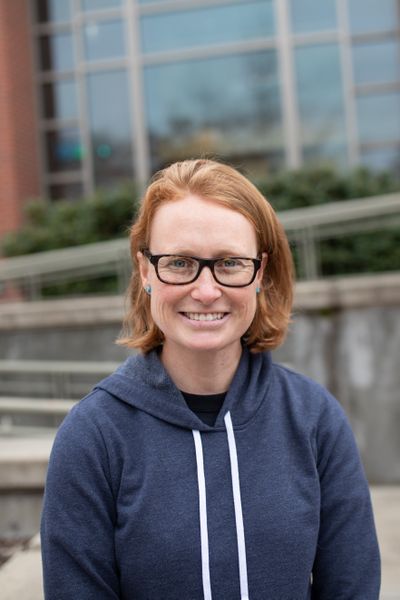Faith and Values: LGBTQ+ survey seeks to give queer community a voice while providing state officials with demographic insights

In a pioneering effort to better understand the LGTBQ+ community, this Pride month marked the launch of the first comprehensive survey of the state’s queer residents.
I couldn’t be prouder to say that my wife, Traci Gillig, is the lead principal researcher for the survey. An assistant professor of strategic communication at Washington State University’s Murrow College, she’s leading a dynamic team of researchers on this project, which is funded by the Washington State LGBTQ Commission.
And I get to be her sidekick, serving on the advisory board. Fittingly, my role is to urge people in faith communities to take the survey.
This project is important. It aims to amplify the voices of the queer community and provide state officials with crucial insights into the LGBT demographics and geographic landscape.
We’ve opened the survey to adolescents as young as 11 and have it available in English, Spanish and Chinese.
As my wife said, “The government of Washington is actively trying to make this state a safe and welcoming place for LGBTQ+ people. This survey is going to be very valuable for LGBTQ+ people like me. It will help gather information and share people’s voices with lawmakers, so they can continue to move policy in a helpful direction.”
Those voices include queer people of faith.
The LGBTQ+ community has endured appalling persecution from many religious institutions – forcibly exiled from sacred spaces, barred from positions of faith leadership, subjected to spiritual and other forms of abuse, malicious condemnation, our very existence deemed an affront to dogma.
These are often the stories that make headlines: “Church Splits Over LGBT Clergy,” “Catholic Diocese Fires Lesbian Married Teacher for Being ‘Immoral,’” “Christian University Puts Ban on LGBTQ Relationships, Expression.”
However, despite all this, faith still manages to provide many in the queer community with a source of comfort, hope and inner strength.
Just the other day FāVS reported on the Interfaith Pride service that took place as part of the Spokane Pride festivities. One attendee said the service was a reminder that he didn’t have to be closeted to be a believer.
In recent years an increasing number of religious institutions across America have taken progressive stances officially welcoming queer individuals into their congregations and vocally supporting key issues like marriage equality and ordination of openly gay clergy.
Just this year the United Methodist Church struck down a 52-year-old stance on homosexuality being “incompatible with Christian teaching.”
While there are undoubtedly more, I have identified at least 16 Christian denominations here in Washington that have taken the affirming and inclusive step of fully embracing all members. In the coming days I’ll be contacting leaders of those denominations, asking them to share the Washington State LGBTQ+ Survey.
I’ll also be reaching out to non-Christian groups, including Buddhist and Jewish organizations. If you want us to talk with your faith group about this survey, please reach out!
Questions span a wide range of topics, including available resources, legal protections, access to medical care, experiences with discrimination, physical and mental health concerns, safety issues, hate crime incidents, relationship dynamics, financial circumstances and more.
In taking this survey, the faithful can be pivotal agents of change, as their voices and perspectives can help drive meaningful reforms.
The Washington State LGBTQ+ Survey team has already been at Walla Walla, Pasco, Yakima and Spokane Pride handing out the survey. We’ll also be at Seattle Pride on June 30 and Palouse Pride on Aug. 24, as well as other events. Participants can volunteer their email on a separate form and be entered in a raffle drawing to win a $50 gift card. The anonymous survey is online at lgbtq.wa.gov/survey.
Tracy Simmons, a longtime religion reporter, is a Washington State University scholarly assistant professor and the editor of FāVS News, a website dedicated to covering faith, ethics and values in the Spokane region.